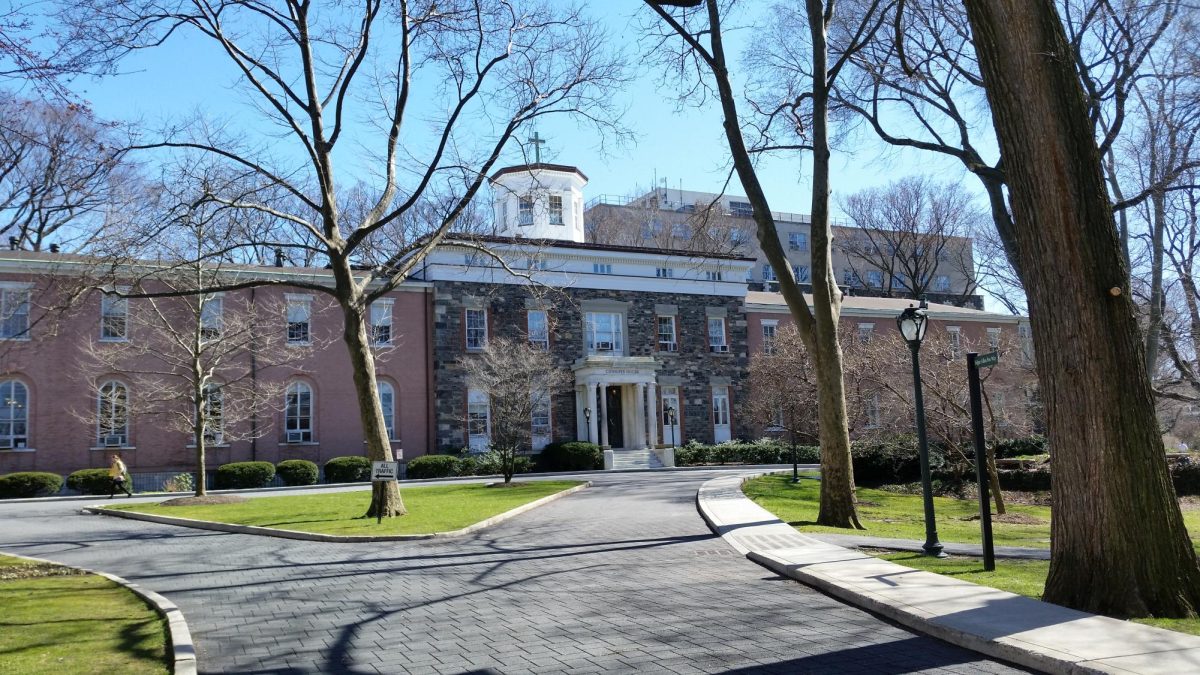The U.S. Department of Education resumed the accrual of unsubsidized loans on Sept. 1, following a three-year pause which began on March 13, 2020, due to the COVID-19 pandemic. The pause had been extended numerous times before Congress passed a law in June 2023 forcing the department to resume the collection of payments.
While many student borrowers have subsidized loans — which do not accrue interest until after a six-month grace period following graduation — borrowers of unsubsidized loans whose grace period has ended will now be responsible for their loan payment and capitalized interest once the collection begins on Oct. 1.
Currently, the interest rate for unsubsidized loans disbursed to undergraduates between July 1 of 2023 and 2024 is 5.50%. The federal government has encouraged students to make payments during school.
“I knew it was only a matter of time,”Mandy Castellanos, FCLC ’25
In March of 2020, the federal government paused all payments and installed a 0% interest rate on all federal student loans to alleviate financial instability and uncertainty for borrowers following the surge of the COVID-19 pandemic.
Mandy Castellanos, Fordham College at Lincoln Center (FCLC) ’25, was made aware of the decision to resume interest on subsidized loans through the news as well as an announcement made to students by Federal Student Aid (FSA). She shared that she felt disappointed but not surprised.
““I knew it was only a matter of time,” Castellanos said.
Since enrolling at Fordham, Castellanos has accepted both subsidized and unsubsidized federal loans. She noted that while she is grateful for the federal loans included in the financial aid package awarded to her each year, she finds it difficult to think of them as an award.
Castellanos shared that although the government placed a three-year moratorium on interest accrual and payments, her worry never subsided.
“Making loan payments as a freshly graduated college student and a student who needs to get their master’s to get a higher level/income career is incredibly worrisome,” she said. “I often wonder how I and my peers are expected to pay back thousands of dollars while having an entry-level job that pays just enough to afford rent, groceries, gas, etc.”
Yamelis Valarezo, FCLC ’25, said that she has not accepted any unsubsidized loans afforded to her in her financial aid package because she was concerned about the interest accrual that differentiates them from subsidized loans.
Valarezo was not made aware of the decision to resume interest and payments on unsubsidized loans. She found it “jarring and concerning” because of the impact she now expects it will have on students.
Both Castellanos and Valarezo emphasized their worry about the affordability of their higher education.
“I feel that speaks volumes about how the Department of Education or even Fordham decides to ‘prioritize’ their students,” she pointed out.
Fordham’s financial aid office did not respond to The Observer’s requests for comment.
Valarezo added that she believes that the university should also send out reminders in case students missed the announcement. Fordham or its financial aid offices have not shared any communication with students announcing the resumption of interest as of Sept. 13.
“This specific form of financial aid is really like a double-edged sword in a way,”Yamelis Valarezo, FCLC ’25
Both Castellanos and Valarezo emphasized their worry about the affordability of their higher education.
“Of course, it helps me complete my education right now,” Castellanos said. “It’s a short-term aid that will force us to reap the consequences further on.”
Valarezo shared that she hopes to go to graduate school and earn her doctoral degree in psychology, and while she has tried her best to not accept any unsubsidized loans, she expects that she will have to at some point in the future. She acknowledged that her goals are costly, and accumulation of interest on loans makes it much harder when factoring in costs of living in New York City.
“This specific form of financial aid is really like a double edged sword in a way because, yes, you are relieved of some financial burden during your schooling,” Valarezo said. “But on the other hand the debt accumulation along the way is really what sticks around for such a long time and becomes more of an obstacle in many students’ lives.”
The federal government offers several repayment plans for the loans it services, including Income-Driven Repayment plans (IDR) such as the Saving on a Valuable Education (SAVE) plan, which provides the lowest monthly payment plans of all IDRs. SAVE readjusts monthly payment costs based on income and family size.
The Biden-Harris administration launched the SAVE plan in August 2023 following the Supreme Court’s decision to bar the president’s student debt relief plan, which would have erased nearly $430 billion in student debt and reduce the average amount of non-forgiven loan repayments from $29,400 to $13,600.
On June 1, 2023, negotiations between Democrats and Republicans in Congress resulted in a deal passed to raise the nation’s debt ceiling, which included a provision to codify the end of the pause on student loan interest and payments. Later that month, the Supreme Court ruled that the administration did not have the authority to attempt to either cancel or reduce student loan debt.
According to FSA, paused payments during the COVID-19 relief measures are eligible for IDR plans. Temporary relief is also available in the form of requested deferment and loan forbearance.
In response to the Supreme Court ruling prohibiting U.S. President Joe Biden’s efforts to alleviate student loan debt, his administration introduced an on-ramp transition period available to eligible borrowers whose loan repayments had been paused. The transition period prevents borrowers from having a delinquency reported to credit reporting agencies until Sept. 30, 2024, which alleviates the impact of missed, late or insufficient payments.
Despite efforts to ease the financial burden endured by loan borrowers during the pandemic, Valarezo noted that the fiscal impact of COVID-19 continues to reverberate for many.
“The economic effects of Covid-19 have not exactly subsided these past 3 years,” Valarezo said. “Most people are still extremely burdened with the immense loss of finances during the pandemic and now inflation has been in full effect and has affected New Yorkers tremendously as the already expensive city became terribly costly to live in.”


